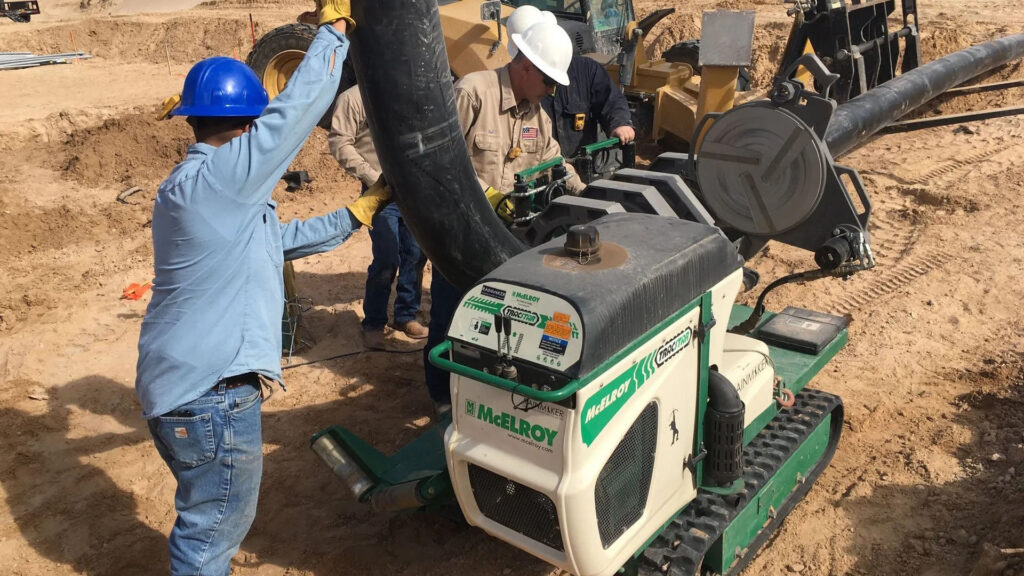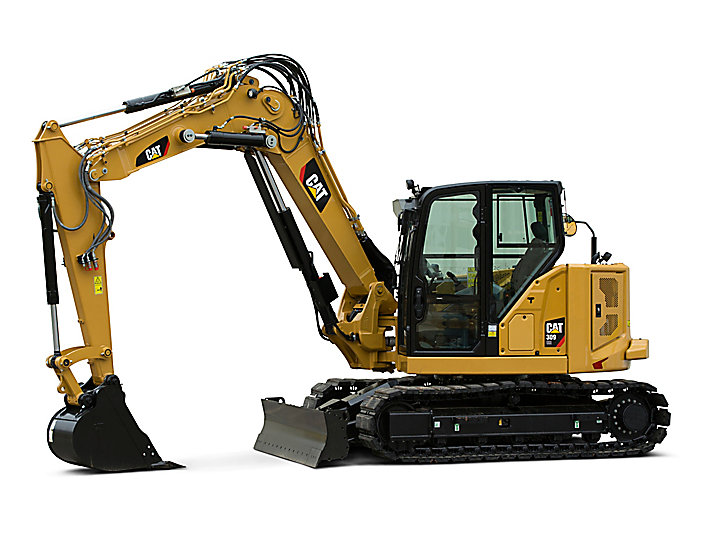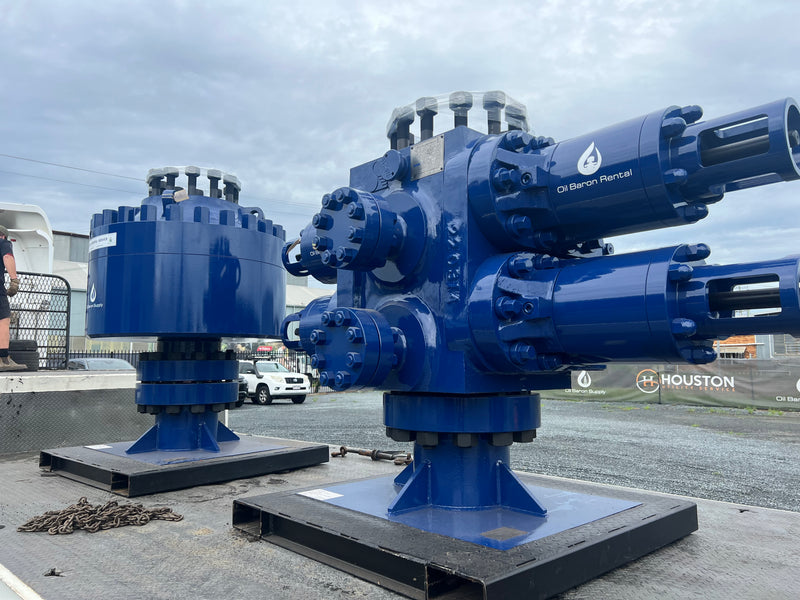A Comprehensive Overview to the Different Kinds Of Oil Field Equipment and Pipeline Equipment Available
The oil and gas market depends heavily on customized equipment for efficient removal and transportation. Numerous kinds of machinery, from piercing rigs to tank, play vital duties in this complicated procedure. Each tool serves distinct functions that add to total functional success. Comprehending these elements is essential for anybody associated with the sector. As the sector progresses, so as well do the modern technologies that sustain it. What developments are on the perspective?

Drilling Rigs: The Foundation of Oil Expedition
Drilling rigs act as the important machinery in the domain of oil expedition, making it possible for companies to accessibility hydrocarbon reserves buried deep under the Earth's surface. These rigs can be found in different types, consisting of land rigs, offshore rigs, and mobile systems, each designed to operate in specific environments. Equipped with advanced innovation, drilling rigs can permeate geological formations with accuracy, guaranteeing reliable resource removal. The structural stability and functional capabilities of these rigs are vital, as they must stand up to severe problems and considerable pressures. In addition, the selection of a drilling rig impacts the total task price and timeline, making it a crucial factor to consider for oil business seeking to maximize their exploration efforts and make the most of productivity in their operations.
Pumps: Necessary for Liquid Activity
In the oil removal process, the role of pumps is considerable, assisting in the activity of liquids throughout different phases of production. Pumps are important for carrying crude oil, water, and other liquids from below ground storage tanks to the surface area and then through pipes to refineries. They can be found in numerous kinds, consisting of centrifugal, positive displacement, and completely submersible pumps, each offering particular purposes based on the liquid qualities and functional needs. Centrifugal pumps are typically utilized for their effectiveness in high-flow applications, while positive displacement pumps succeed in taking care of thick liquids. The choice of pump influences total effectiveness, operational safety, and upkeep expenses. Proper selection and upkeep of pumps are important for optimizing manufacturing and lessening downtime in oil field procedures.
Shutoffs: Controlling Flow and Pressure

Shutoffs play an important role in handling the circulation and stress of fluids within oil fields and pipelines. Different kinds of shutoffs serve distinctive applications, each developed to meet details functions fundamental for effective procedure - Superior Oilfield pipeline equipment rentals. Comprehending the attributes and uses these valves is necessary for enhancing system performance and safety
Kinds of Valves
Crucial components in oil field operations, valves play an important function in managing the circulation and pressure of fluids within pipes and equipment. Different kinds of shutoffs are utilized to fulfill the diverse requirements of oil and gas manufacturing. Typical types include gate valves, which supply a straight-line flow and minimal pressure drop; world shutoffs, understood for their strangling capacities; and round shutoffs, acknowledged for their quick on/off control. Furthermore, check shutoffs protect against backflow, while butterfly shutoffs provide a lightweight solution for controling flow. Each valve type is made with details materials and configurations to withstand the rough problems usually discovered in oil fields, ensuring dependability and efficiency in procedures. Comprehending these types is essential for effective system monitoring.
Valve Applications and Functions
While different kinds of valves serve unique objectives, their key applications focus on managing flow and stress within oil and gas systems. Valves such as gateway, globe, and ball shutoffs regulate fluid movement, ensuring peak performance and security. Gateway shutoffs are commonly made use of for on/off control, supplying very little flow resistance. Globe shutoffs, on the other hand, deal exact flow guideline, making them suitable for strangling applications. Sphere shutoffs are preferred for their quick procedure and tight securing abilities. On top of that, pressure alleviation shutoffs are important for avoiding system overpressure, securing tools integrity. Generally, the appropriate choice and application of shutoffs boost operational effectiveness, making sure the reliable transportation of oil and gas with pipelines and processing centers.
Compressors: Enhancing Gas Transport
Compressors play a critical role in the effective transportation of natural gas, making sure that it moves smoothly through pipelines informative post over lengthy ranges. These devices enhance the stress of gas, allowing it to conquer rubbing and altitude changes within the pipeline system. In addition, compressors assist in the balancing of supply and need, suiting fluctuations in usage and manufacturing rates. Various kinds of compressors are employed in the market, including centrifugal, reciprocating, and rotary screw compressors, each offering distinct advantages based on the operational requirements. Normal upkeep of these compressors is crucial to take full advantage of effectiveness and decrease downtime, inevitably adding to a reliable gas transportation network. Their important feature highlights the importance of compressors in the overall oil and gas facilities.
Storage Tanks: Safe and Effective Liquid Monitoring
Effective transportation of all-natural gas relies upon various sustaining systems, among which is the correct management of tank. These storage tanks play a vital function in safely including liquids, making certain that functional efficiency is kept while lessening environmental risks. Created from resilient products, they are developed to endure high stress and destructive elements. Effectively sized and tactically located, storage containers assist in the smooth flow of gas and other liquids, preventing traffic jams in supply chains. Routine maintenance and surveillance are essential to find leaks or architectural issues, advertising safety and conformity with regulatory requirements. Ultimately, the reliable administration of storage space tanks is critical for the total integrity and integrity of the oil and gas industry's liquid handling systems.
Pipeline Solutions: Infrastructure for Transport
Pipeline systems act as the foundation of the oil and gas industry, assisting in the reliable transportation of hydrocarbons over large ranges. These systems include various elements, consisting of pipelines, valves, pumps, and compressors, all meticulously made to guarantee seamless flow. The products made use of in pipeline building and construction, typically steel or high-density polyethylene, are picked for toughness and resistance to deterioration. Pipeline networks can extend throughout land and water, connecting manufacturing websites to refineries and circulation. In addition, progressed innovation makes it possible for real-time monitoring of flow prices and stress degrees, enhancing operational efficiency. The critical positioning of these pipes decreases ecological impact while maximizing source availability, thus playing an essential duty in conference power demands internationally.
Safety And Security Equipment: Guaranteeing Employee and Environmental Management
The operation of pipeline systems, while necessary for power transport, additionally presents considerable security difficulties for workers and the setting. Safety and security equipment plays a significant role in mitigating these risks. Personal safety devices (PPE) such as headgears, handwear covers, Homepage and non-slip shoes safeguards workers from physical risks. Furthermore, gas detection systems monitor for leakages, making certain that damaging substances do not pose a danger to personnel or the surrounding environment. Emergency closure systems are critical for swiftly halting procedures during a dilemma, stopping potential disasters. Spill containment materials, consisting of absorbents and obstacles, are essential for lessening environmental impact. Overall, purchasing all-inclusive safety tools is important for maintaining functional stability and securing both workers and the setting in over at this website the oil and gas industry.

Often Asked Concerns
Exactly how Do I Select the Right Oil Field Equipment for My Job?
Selecting the right oil area devices includes examining job requirements, budget plan constraints, and operational requirements. Consider variables such as tools integrity, compatibility with existing systems, and the vendor's reputation to ensure peak performance and safety and security.
What Are the Maintenance Demands for Oil Field Equipment?
Maintenance demands for oil area devices include routine assessments, lubrication, and timely fixings. Operators ought to likewise stick to maker standards, monitor performance metrics, and warranty compliance with safety and security guidelines to enhance long life and effectiveness.

How Can I Make Sure Conformity With Environmental Rules?
To assure conformity with environmental guidelines, companies need to conduct routine audits, apply ideal practices, buy training, keep proper paperwork, and remain updated on regulations (Superior Rentals fusion machines). Cooperation with ecological agencies can also improve adherence to laws
What Is the Average Life-span of Pipeline Equipment?
The average lifespan of pipeline equipment normally varies from 20 to 50 years, depending upon factors such as material top quality, ecological problems, and upkeep techniques. Regular inspections can considerably affect longevity and functional effectiveness.
How Do I Securely Transport Oil Field Equipment to Remote Locations?
Transferring oil field devices to remote places calls for careful planning, consisting of route assessment, securing authorizations, using suitable lorries, and making certain safety and security methods are followed. Appropriate training and interaction amongst teams are necessary for successful transport.